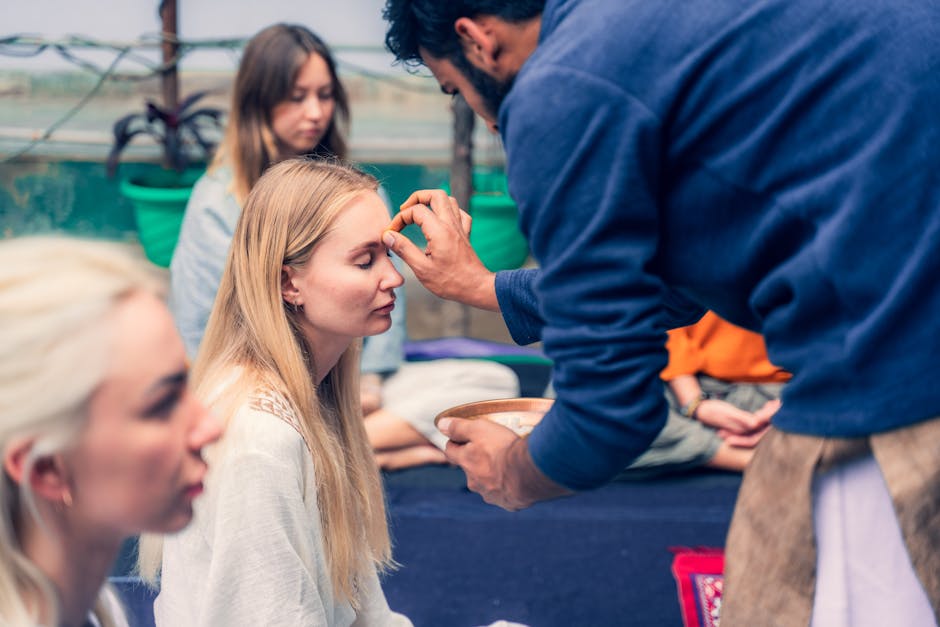The Role of Mindfulness in Wellness
Welcome to a journey into the transformative power of mindfulness in enhancing our overall well-being. In a world filled with constant distractions and stressors, the practice of mindfulness offers a profound way to cultivate inner peace, mental clarity, and emotional resilience. By focusing on the present moment without judgment, we can tap into a profound source of healing and self-discovery. Join us as we explore the multi-faceted role of mindfulness in nurturing holistic wellness.
The Essence of Mindfulness

At its core, mindfulness is the practice of paying attention to the present moment with openness, curiosity, and acceptance. Developed from ancient Buddhist traditions, mindfulness has gained widespread popularity in contemporary psychology and wellness practices. By cultivating a nonjudgmental awareness of our thoughts, emotions, and sensations, we can develop a deeper understanding of ourselves and the world around us. Mindfulness encourages us to observe our experiences without getting caught up in them, fostering a sense of clarity and calm amidst the chaos of daily life.
The Mind-Body Connection

Research has shown that mindfulness not only benefits our mental well-being but also has profound effects on our physical health. When we practice mindfulness, we activate the body’s relaxation response, reducing stress hormones and lowering blood pressure. Studies have demonstrated that mindfulness can help alleviate symptoms of anxiety, depression, and chronic pain. By tuning into our body’s signals and sensations, we can develop a deeper connection to our physical health and well-being.
Cultivating Emotional Resilience

One of the key benefits of mindfulness is its ability to enhance emotional resilience and regulation. By observing our emotions without attachment or judgment, we can learn to respond to challenging situations with greater clarity and compassion. Mindfulness teaches us to pause, breathe, and choose our responses consciously, rather than reacting impulsively out of habit. This practice fosters emotional intelligence, empathy, and self-awareness, empowering us to navigate life’s ups and downs with grace and equanimity.
Mindfulness in Daily Life

Integrating mindfulness into our daily routines can have a profound impact on our overall well-being. Simple practices such as mindful breathing, body scan meditation, and walking meditation can help us stay grounded and present throughout the day. By bringing awareness to our actions, thoughts, and emotions, we can cultivate a deep sense of gratitude and appreciation for the beauty of life’s moments, both big and small. Mindfulness reminds us to savor the present and let go of worries about the past or future.
The Science of Mindfulness
Recent advances in neuroscience have shed light on the powerful effects of mindfulness on the brain. Studies have shown that regular mindfulness practice can lead to structural changes in the brain, increasing neural connectivity and promoting neuroplasticity. Mindfulness has been linked to improvements in attention, memory, and cognitive function, highlighting its potential as a powerful tool for enhancing mental clarity and focus. The scientific evidence supporting the benefits of mindfulness continues to grow, fueling its integration into mainstream healthcare and wellness programs.
Mindfulness-Based Interventions
From mindfulness-based stress reduction (MBSR) to mindfulness-based cognitive therapy (MBCT), a variety of interventions have been developed to harness the healing power of mindfulness. These programs incorporate mindfulness practices such as meditation, mindful movement, and mindful eating to help individuals cope with stress, anxiety, and mood disorders. Mindfulness-based interventions have been shown to be effective in reducing symptoms of depression, enhancing self-awareness, and improving overall quality of life. By engaging in structured mindfulness practices, individuals can cultivate a greater sense of well-being and resilience.
Challenges and Controversies
While mindfulness has gained widespread acclaim for its benefits, it is not without its challenges and controversies. Some critics argue that mindfulness has been commodified and diluted into a trendy self-help tool, stripped of its spiritual and ethical roots. Others raise concerns about the potential for mindfulness to be misused or misunderstood, leading to feelings of disconnection or dissociation. As mindfulness continues to gain popularity in mainstream culture, it is essential to approach its practice with a sense of discernment and integrity, honoring its origins and deeper philosophical underpinnings.
Common Misconceptions
One common misconception about mindfulness is that it requires clearing the mind of all thoughts. In reality, mindfulness involves acknowledging and accepting our thoughts without judgment, allowing them to come and go like clouds passing in the sky. Another misconception is that mindfulness is time-consuming or difficult to practice. In truth, mindfulness can be integrated into our daily lives through simple practices such as mindful breathing, body scan meditation, or mindful walking. By dispelling these misconceptions, we can approach mindfulness with greater ease and openness.
Conclusion
In conclusion, the role of mindfulness in wellness is profound and far-reaching, offering a path to inner peace, emotional resilience, and holistic well-being. By cultivating a present-moment awareness and nonjudgmental acceptance of our experiences, we can tap into a wellspring of healing and transformation. Mindfulness empowers us to navigate life’s challenges with grace, clarity, and compassion, fostering a deep sense of connection to ourselves and the world around us. As we continue to explore the depths of mindfulness, may we embrace its transformative power and embody its essence in our daily lives.
To wrap things up, let us remember that mindfulness is not just a practice but a way of beinga journey of self-discovery and awakening that unfolds with each breath and each moment. As we embark on this journey, may we approach it with curiosity, openness, and a willingness to embrace the fullness of our experience. May mindfulness be our guiding light, illuminating the path to wellness, wholeness, and inner peace.




